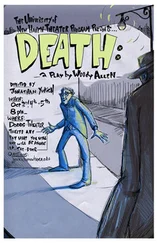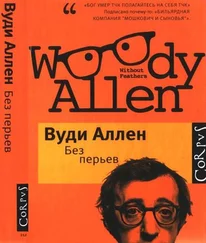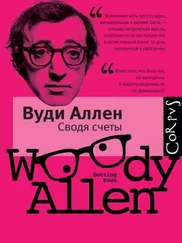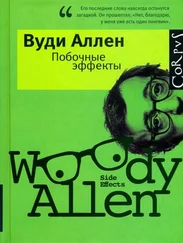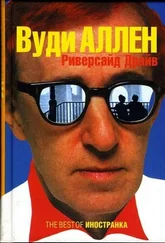Unfortunately, sometimes a travelogue would pop on, where Mister Fitzgerald would take us to places like Ceylon and Java, the land that time forgot, whether we wanted to go or not. And sometimes you’d get a door prize, perhaps a paper gun that made a loud noise when you snapped it forward, but here’s the killer—for all that, the price of admission was twelve cents. That was when I was little. Though not so little I couldn’t go to a movie. The price in the classy cinemas was twenty cents, then a quarter, then thirty-five cents. When it hit fifty-five cents, the neighborhood rose up like the crew of the Potemkin . Someone told me a ticket now can be twenty dollars. You know how many deposit bottles I would have had to return to get twenty dollars?
There were movie houses around every corner and not a day passed when there wasn’t something worth going to—if you’re okay with Crime Doctor or The Whistler . I loved them all. And one day my life changed when my father took me to Manhattan for what today would be called some quality time, although he was probably going into the city to pay off some bookies. I was about seven years old and till then had only seen Brooklyn.
We rode the subway, got off at Times Square, and walked upstairs, emerging at Broadway and Forty-Second Street. I was flabbergasted. Here’s the kid’s view: a million people, many soldiers and sailors, marines. Endless movie houses all up Broadway and lining both sides of Forty-Second Street. Dance halls. Stylish women, or so I thought. Guys playing instruments for money. The Bond clothing sign, the Camel cigarette sign with the guy blowing the large smoke rings. Desiccated types screaming to a gathered group about the end of the world coming Thursday. (Does this guy know something?) And just how did those paper dolls dance in the air with no strings? On Forty-Second Street was the Laugh Movie, with its distorting mirrors outside (which I must say failed to amuse me even at seven) and then Hubert’s Flea Museum boasting a hermaphrodite, whatever the hell that was. We paused there only so my father could shoot the .22-caliber rifles and put out the candles, and he went for about five bucks on bullets.
My dad never saw a gun he didn’t like. He could never resist a shooting gallery, which then had rifles and live ammunition. In later life he got a pistol permit, rationalizing that he needed to pack heat because he carried around jewelry. In those years he hustled jewelry and came home late because he also waited on tables nights. He didn’t need a gun and pulled the pistol only twice: once, he marched a troublemaker off a city bus; once, alone in the subway at three a.m. and confronted by four young men, he took it out and fired a shot into the black of the tunnel. They turned on their heels and ran. Not that they attacked him, but he sensed they were going to, although for all he knew they were a barbershop quartet—in which case he was right in scaring them off.
And so we walked up Broadway past one movie house after another and the restaurants; McGinnis’s, Roth’s, Jack Dempsey’s, the Turf, and finally Lindy’s. We hit the various penny arcades, ate frankfurters, and drank pina coladas, maybe saw a movie. I was so young I can’t recall, except that I experienced instant passion for Manhattan, and over the years I returned every chance I got. There are no more blissful memories for me than playing hooky, getting on the train at Avenue J in Brooklyn, riding into the city, buying a paper, ducking into the Automat, scarfing up some cherry pie and coffee, and reading Jimmy Cannon. By then, the Paramount would open and I’d catch the movie and the stage show, always loving the comic. I recall going to the Roxy when the Duke Ellington band was there, and when the film ended and the orchestra rose out of the pit playing “Take the A Train,” the top of my head blew off. From then on, any movie that was set in New York had me. How many times did I sit enthralled watching some leggy tootsie come home from a nightclub montage in Manhattan, toting an extortionate pelt over her shoulder as she entered a Fifth Avenue lobby, pressed the elevator button and rode up to her apartment, not turning in till dawn was coming up to the slow strains of “Out of Nowhere”?
Every time I returned to Brooklyn it was the city across the river that I wanted to live in. I longed for the day I could go into a Manhattan bar and say, “The usual.” Years later Mort Sahl had a brilliant idea about starting a class action suit against the movies for ruining all our lives. But I digress.
In our story I’m still on Avenue J in Brooklyn, sunsuit togged by day and finally going from my crib to a single bed. I do recall that little rite of passage. So fearful a kid was I, that from night one in my new bed, I formed what I called my “sleeping position,” a position on my right side that enabled me to push myself up in a flash and react should a werewolf emerge from the closet. I slept prepared to vault out of bed, but to do what? Good question. Jiu-jitsu was rather popular in those war years, but you had to get the werewolf to shake hands with you before you threw him over your shoulder. Anyhow, I will say with age has come maturity and I can see now how silly it all was and how much wiser it is to simply sleep with a Louisville Slugger at arm’s reach.
Commensurate with the escapist fantasies of a chic Manhattan life—and I say chic because while other boys saw movies and came out wanting to be John Wayne, Gary Cooper, Alan Ladd, I identified more with Reginald Gardiner, Clifton Webb, and the more effete characters. Oh, and Bob Hope to a fault; I never missed him in the movies or on the radio. I loved the radio. It was another version of bliss, being sick or feigning illness so I could stay home from school. Pretending to be sick was hard. If I had no temperature I had to go to school, and since my mother always sat there after she stuck the thermometer in my mouth, it was almost impossible to find a radiator or light bulb to jack up the mercury without getting coldcocked. But to be home sick: my spot in bed, the radio next to me. The Breakfast Club , Helen Trent , Luncheon at Sardi’s , Queen for a Day , Lorenzo Jones and his wife Belle, and yes, André Baruch was married to Bea Wain. Finally late afternoon, Hop Harrigan , Tom Mix , Captain Midnight ; and later at night The Answer Man , Baby Snooks , The Lone Ranger . Meals in bed. My father coming home from work with ten new comic books, a buck’s worth. Radio was a huge part of everyone’s life in those days, and in retrospect I’ve found it interesting that my father, brawler that he was, preferred the comedy programs and never missed Jack Benny or Charlie McCarthy, or later Groucho. I would’ve thought Gangbusters or David Harding, Counterspy , but no, it was The Life of Riley and Fibber McGee and Molly .
I lapped them all up but was never allowed by our family doctor to listen to Inner Sanctum or anything deemed too scary. Dr. Cohen advised my mother never to let me see any Frankenstein movies or Dracula because I was a tense kid who’d have nightmares. My mother drew all her child-rearing advice from our local GP, who listened to my heart with his stethoscope, thumped my chest, hit my knee with a rubber hammer, heard Mom regale him with stories of what a rotten kid I was, psychoanalyzed me, prescribed Cocillana and a couple of mustard plasters, and all done with the convenience of a house call, for a deuce. My mother would take his diagnosis as if Avicenna had made it. She sought medical advice both physical and mental from any doctor or anyone with any sort of tenuous connection to the world of medicine. Often, she sought counsel from our local dentist above the bakery, and not just on matters relating to molars and gums. Also from the local druggist. If you could fill a prescription or sell corn plasters, she’d let you perform brain surgery. If you were an actual doctor, you were God. A doctor’s name was pronounced with the same reverence accorded a rabbi.
Читать дальше
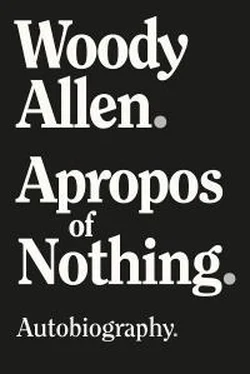
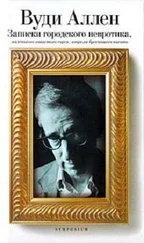
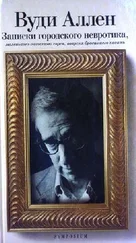
![Вуди Аллен - Парящая лампочка [=Свет плавучего маяка]](/books/94079/vudi-allen-paryachaya-lampochka-svet-plavuchego-mayaka-thumb.webp)
